
The development of cruise terminal is located in the Port of Cartagena; a place with exceptional conditions because of the sea views and because it is very close to the city.

This platform of 11.024 m2 has a dual condition that allows you to see Cartagena from inside and outside. the connection between Cruise Terminal, City Centre and the most important services makes this place the door of the city.

So, the visitor can find in the same place sights as the Roman Theatre, the Isaac Peral Submarine, the town hall, the Castle, the main wall, and the panoramic lift among others monuments.
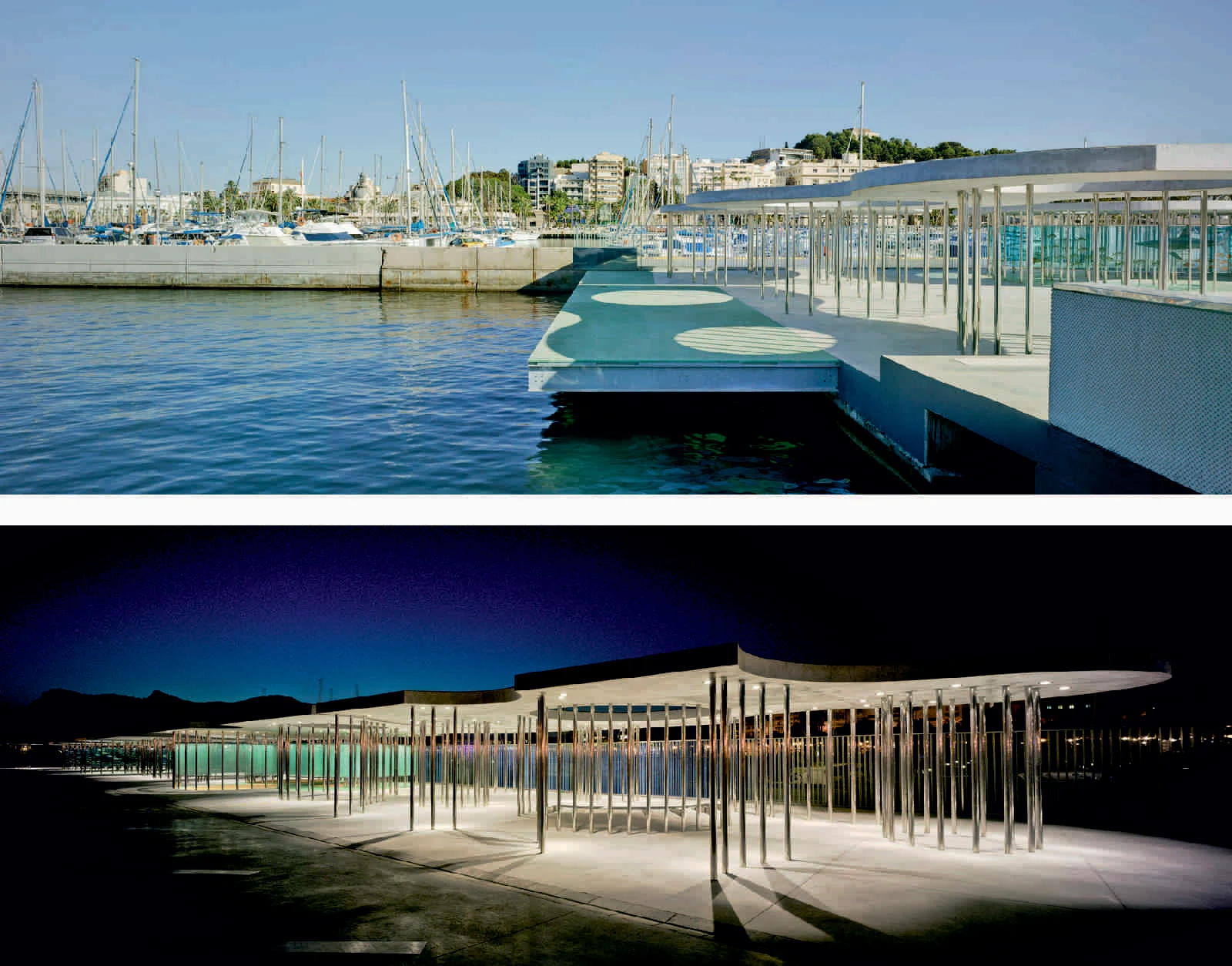
We have planned a public space for cruise passengers and for citizens of Cartagena. This is for their walking, enjoyment, playing, going out… in short, a maximum use of this exceptional space with its strategic position.
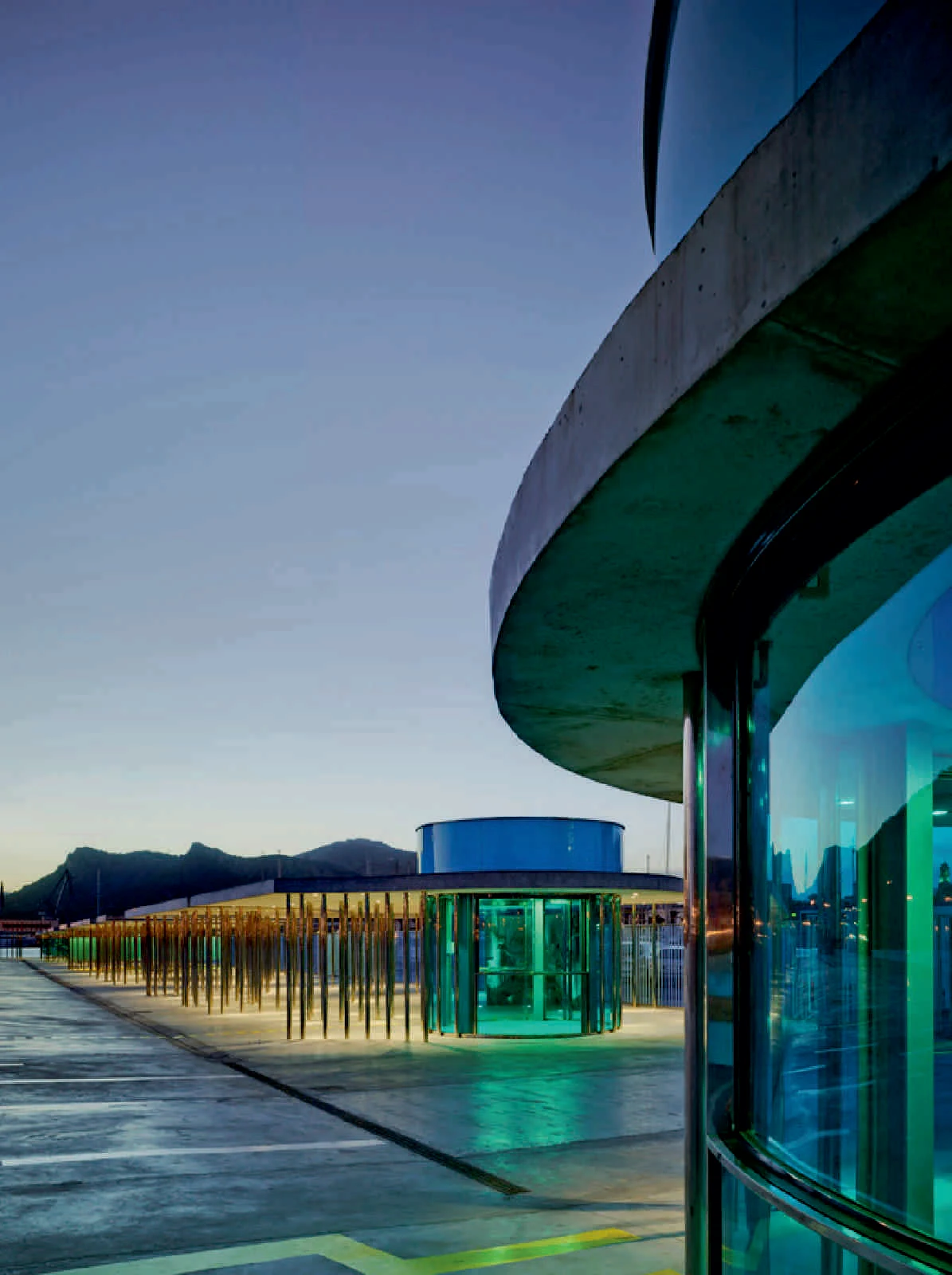
We free up space on the platform (the platform is freed up space??), and the principal uses are concentrated in a singular piece, easy to recognize as a roof which reproduces in its surface a seabed as a ceramic mosaic. Below this ceramic roof we can find several uses:
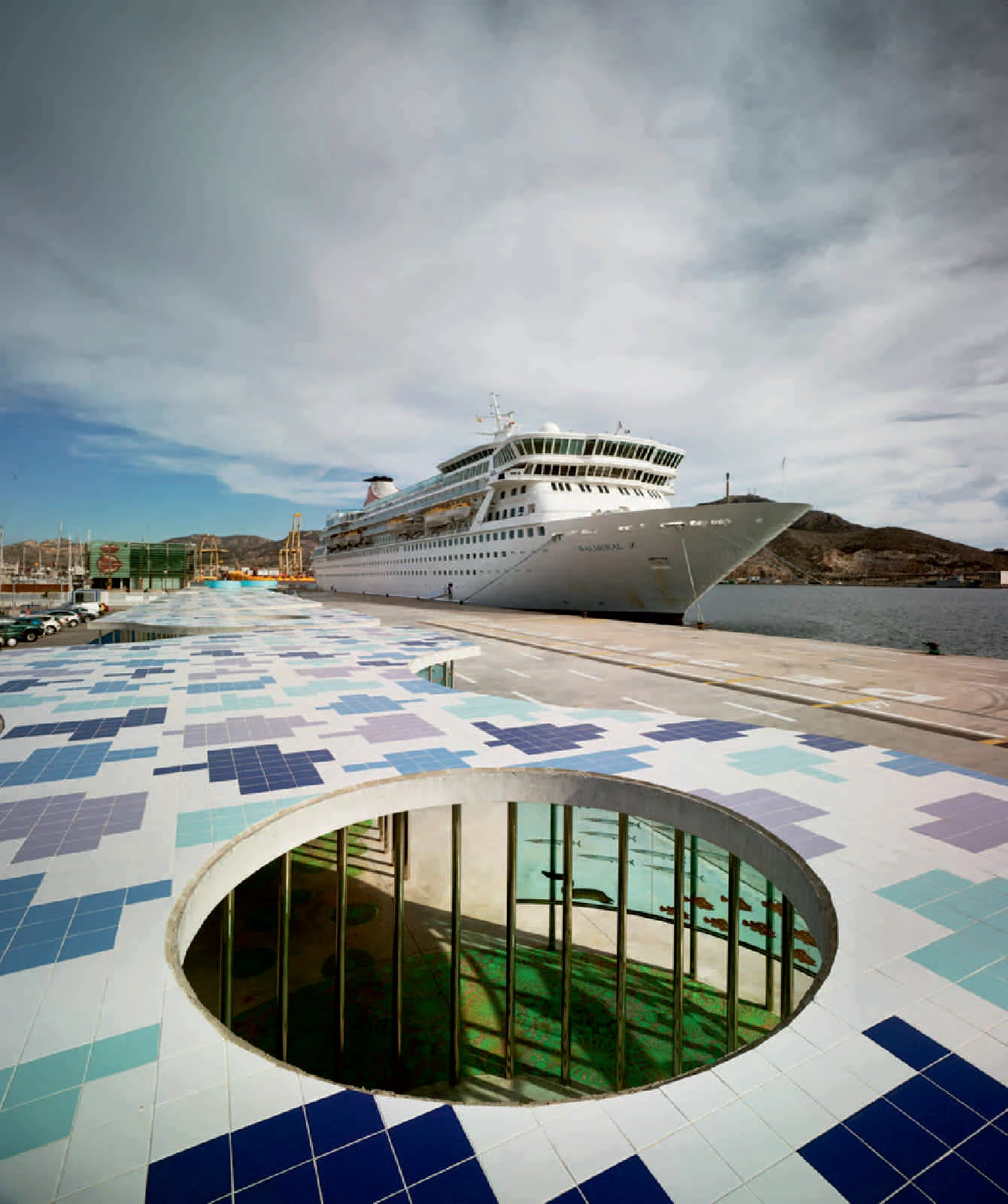
- Shadow spaces where you can enjoy the excellent views, with rest areas with benches around the pillars, and a playground. - Knowledge area called ‘sea classroom’, where information about marine species from the area is exhibited.
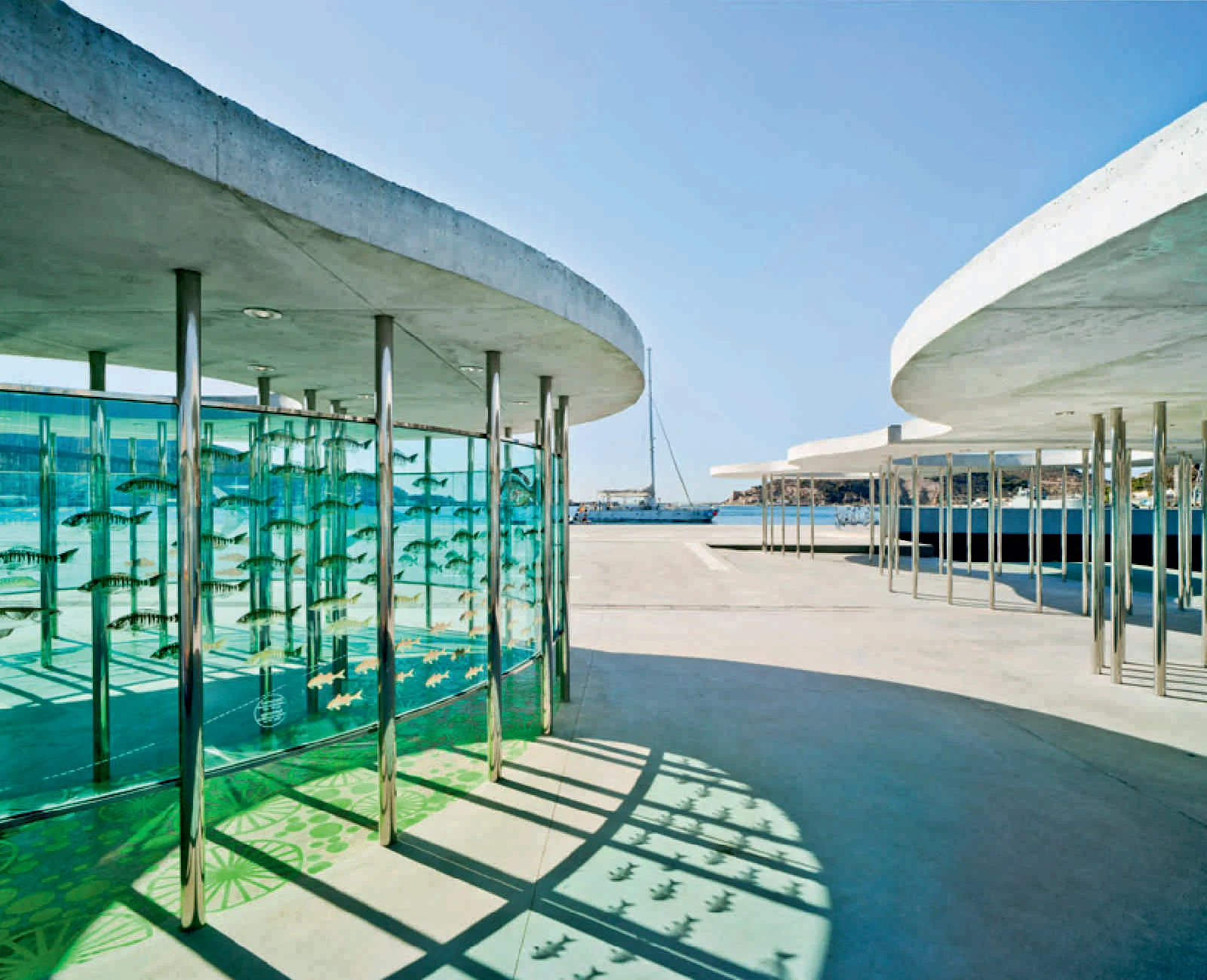
- control area is located in the access area, and it is to control de entry or exit of the passengers. There are two cabins for Port Authority, Police and “Guardia Civil”. - the tourist information is in a third cabin and it offers all information about the city.
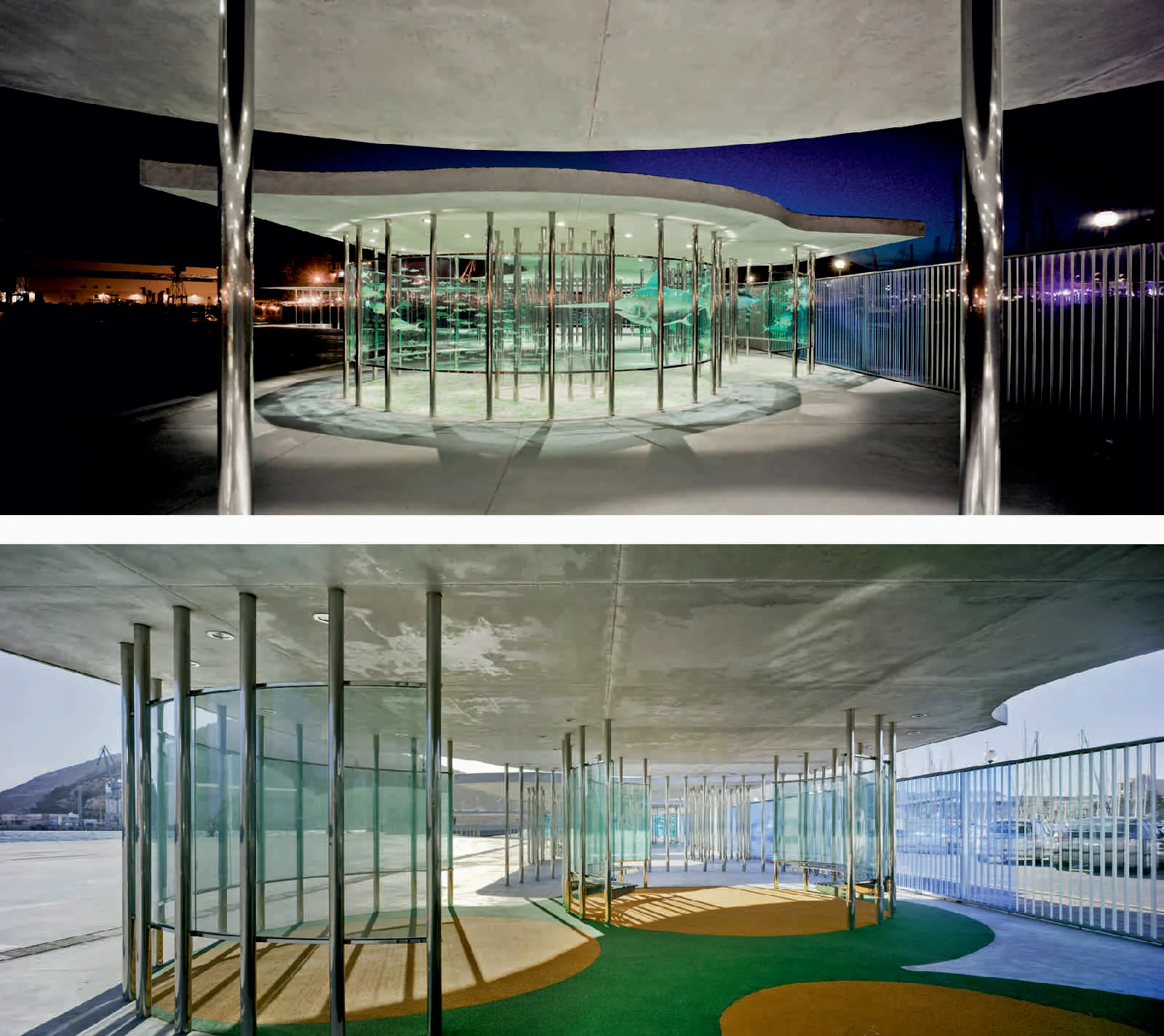
The big esplanade frees up the space, so it is possible to install marquees, and temporal elements with offer plenty of space.

One of most impressive panoramas that the place can offer is from the upper decks of the ship from where you can see the quayside as a big canvas.
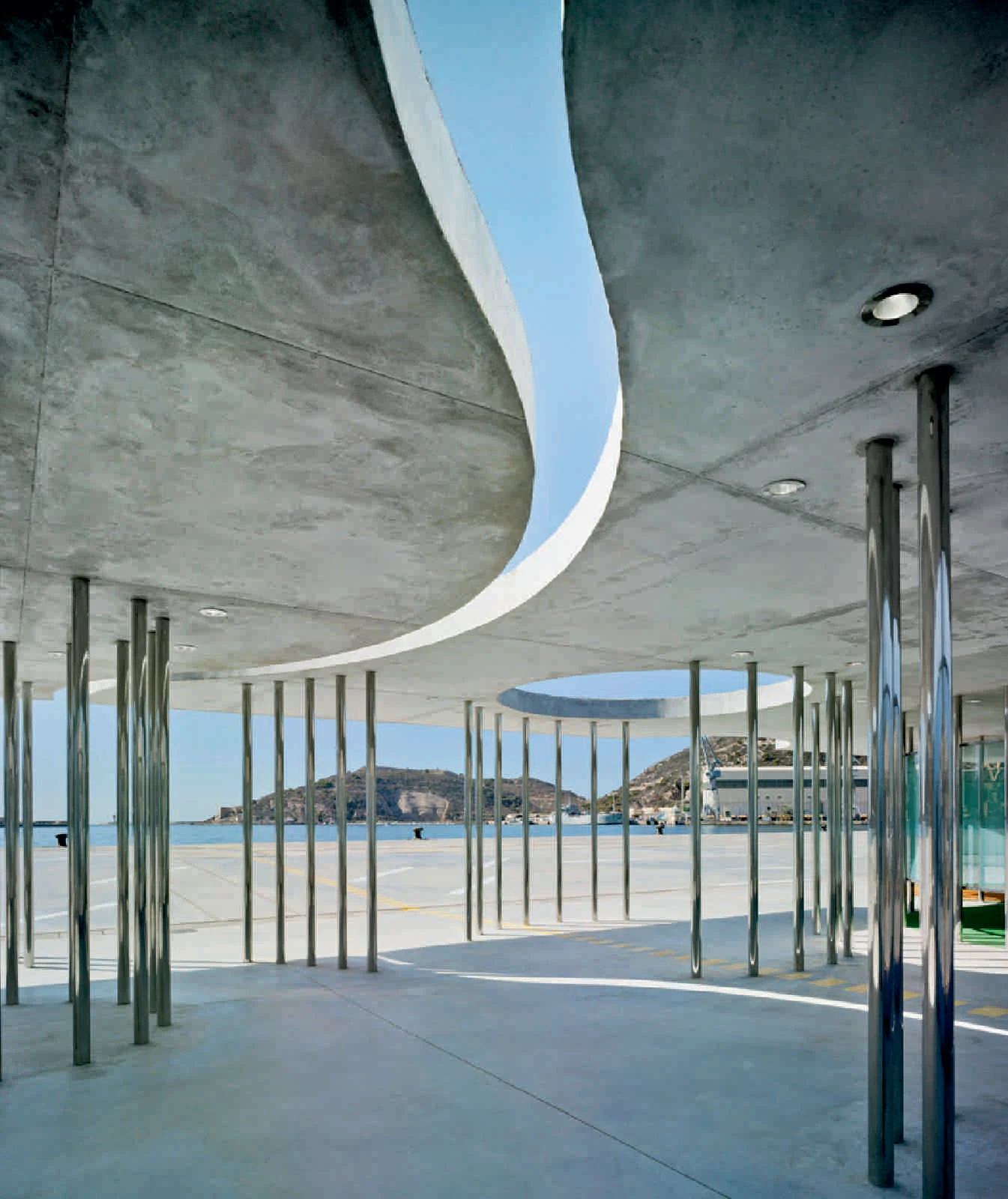
So the surface is a place where the location of the sights or the directions of the wind are described and the roof is a big mosaic which draws the seabed with ceramics.




Location: Port of Cartagena, Spain Architect: MartinLejarraga Collaborators: Mar Melgarejo, Julián Lloret, Beatriz Cascales, Javier Poveda, Claudia Montoya Engineers: Juan Cebrián, Martín Jaúregui Structural Engineer: Typsa Area: 11.074 M2 Year: 2012 Cost: 1.630.000 Eur Client: Port Authority Photographs: David Frutos